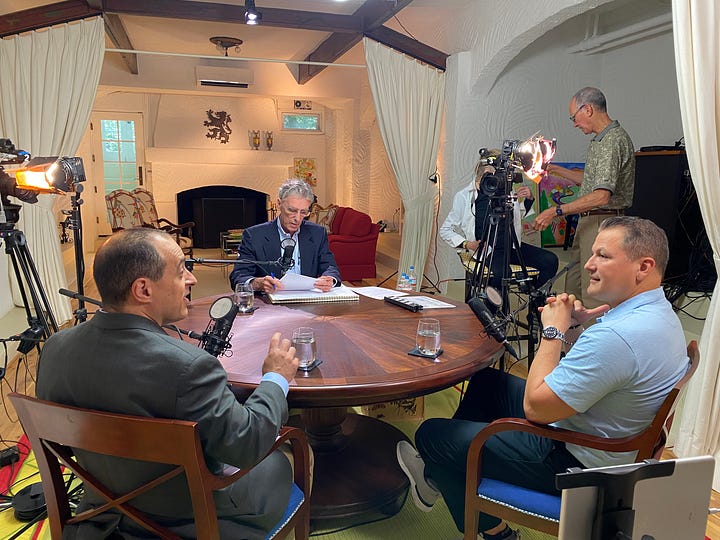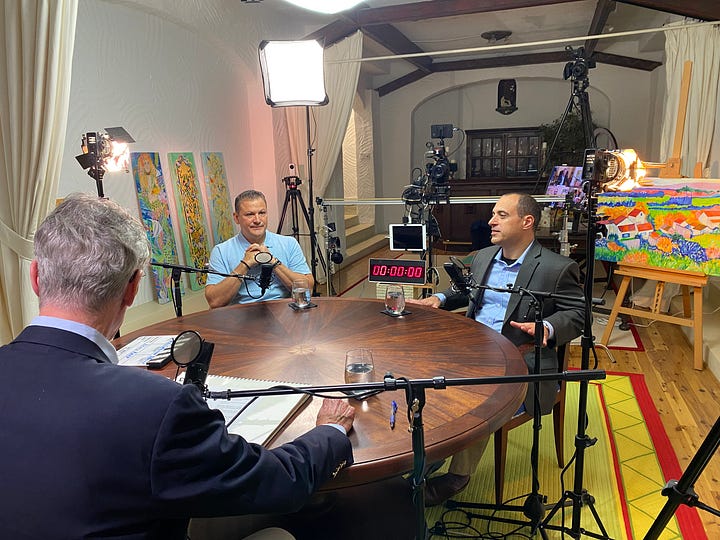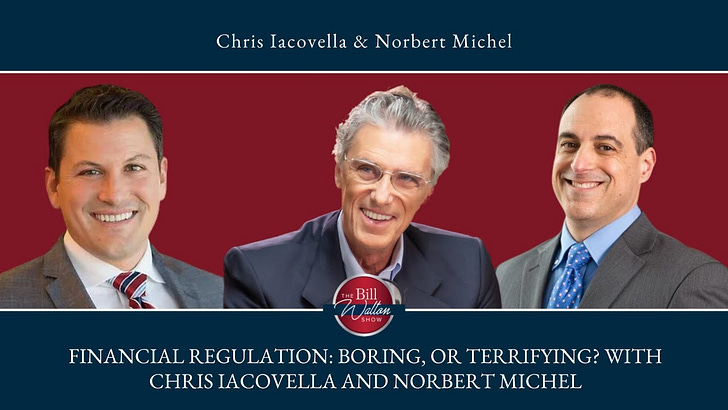Financial Regulation: Boring, or Terrifying? with Chris Iacovella and Norbert Michel
A slew of financial crises that stretch all the way back to the banking Panic of 1907 have been exploited to justify erecting a financial regulatory system that has vastly centralized and expanded federal power over our money.
The irony is that these crises were largely caused, or at least exacerbated, by poorly designed government regulations.
What we have now is an unholy alliance of regulators, mega banks and entrenched special interests who are the chief beneficiaries our system of opaque and complex financial regulation. Adding to this mix is the progressive Left who are now using our financial system to push its DEI and climate change agendas.
Joining me on this episode to explore some of what should be our main concerns and to point the way to solutions are Chris Iacovella, the president of the American Securities Association and Norbert Michel, the director of Cato Institute’s Center for Monetary and Financial Alternatives. Both are deep subject matter experts who know their way around most every nook and cranny of the deep regulatory state.
“Each one of these crises is generally an outgrowth of the idea that we're going to solve for the next crisis, because of the past crisis, with more regulation,” explains Chris. “What's happened in reality is the administrative state continues to grow. It gets bigger, and bigger, with more and more regulation, which stifles competition, which means that we have less choice as consumers. And of course it redirects wealth to a professional class of elites in the Acela Corridor.”
Every time we hear or see a headline about how to make the financial system more “safe” or “fair” we ought to be thinking, okay, well, they want to give all this power to these regulators. Who are these people and what do they really know? Who is benefiting here? What’s the underlying agenda?
This notion of trying to control risk and keep markets stable through some “on high” financial regulator in Washington DC rarely works out well. What the regulatory regime ought to be doing instead is fostering a regulatory framework that promotes creativity, innovation and economic growth.
“If we didn't have these one size fits all rules, every single bank wouldn't look exactly the same. Every balance sheet wouldn't be so uniform. You would have more diversity, a more diverse set of assets, risk dispersion, a much more stable and safer financial system. We’d have a system that fosters innovation and growth,” explains Norbert.
During our wide ranging conversation, we talked about two big concerning things that the regulators want to roll out right now:
The Federal Reserve Bank is testing a central bank digital currency system that opens the door to the its oversight of and control over our individual spending, essentially granting the federal government unprecedented authority to monitor and influence citizens' every financial decision.
Similarly, the Securities and Exchange Commission's ambitious plans for a what it call a “consolidated audit trail” represents a menacing encroachment on individual privacy and financial freedom. It wants to create a national database holding detailed information on every American investor would give regulators unchecked access to personal financial data without the need for warrants or subpoenas.
“The federal government has decided that it wants to understand everything that we do financially. It wants to know our securities transactions. It wants to know what we buy, when we buy things, what we hold as a security, what we invest in, what we finance, how much debt we have. Why they need to know all of this is an open question. The debate hasn't happened,” worries Chris.
Our opaque and complex financial regulatory state is coughing up many worrying things. Listen in to Chris and Norbert explain in plain language what’s at stake and what we can do about it.





